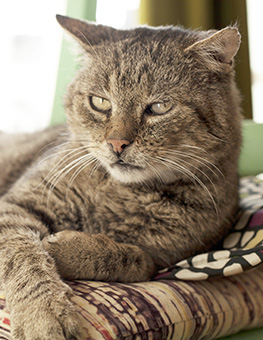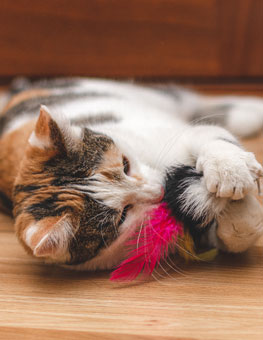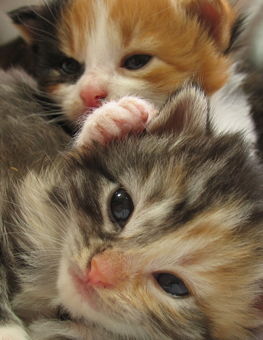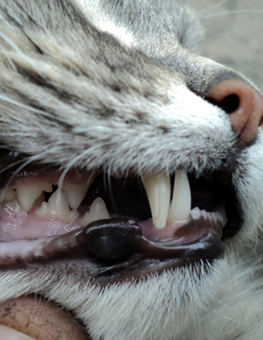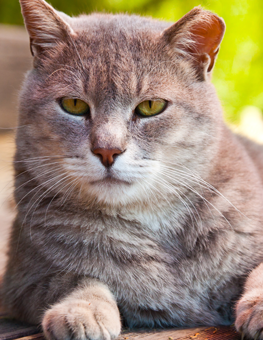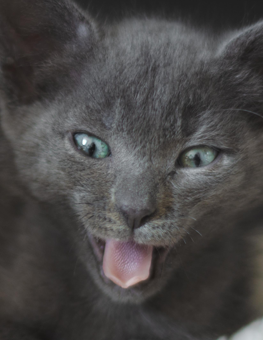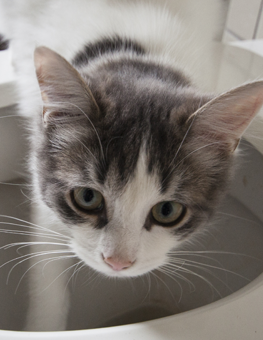Calculating Cat Age
Our cats are living longer than ever thanks to better veterinary medicine, and an increase of owners keeping them exclusively indoors. Our feline companions age differently than us, and it’s definitely not as simple as just multiplying by seven.
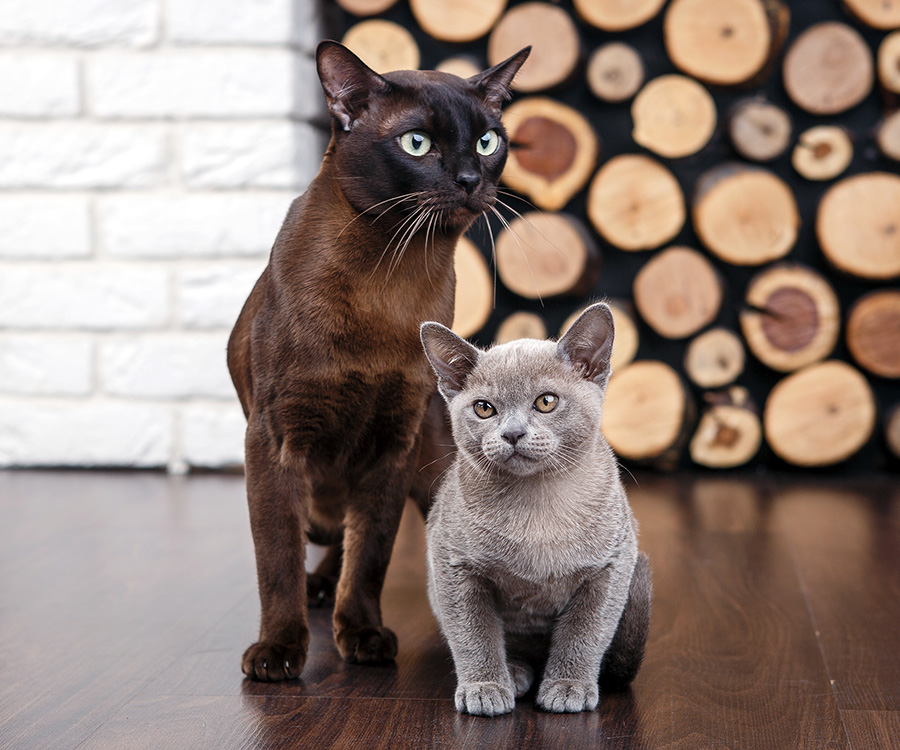
After age two, a cat ages approximately four "cat years" for every calendar year.
These days, it’s not uncommon for cats to live for 15 or even 20 years! With an increase in older cats, it makes sense that cat lovers would be curious about just how old their cat would be compared to human years. Let’s find out how to calculate a cat’s age.
Decoding Your Cat's Age
Calculating your dog’s age in human years is pretty simple, but it depends a lot on size. Unlike dogs, our feline friends are all roughly the same size, so the calculation for your cat’s age is the same no matter what breed of cat you have.
A cat's age is influenced by factors like genetics, breed, and overall health. Some breeds are predisposed to certain health conditions that can affect their lifespan. Moreover, your cat's environment and lifestyle can also impact their age. Providing a balanced diet, regular exercise, and routine veterinary care can help ensure your fur baby lives a long, healthy life.
Guessing Your Cat's Age
Guessing your cat's age can be helpful in understanding their needs and providing appropriate care. While it's not always possible to pin down a cat's age precisely, there are several methods that can help you make an educated guess.
Like dogs, cats age rapidly during their first two years of life. A cat reaches the approximate human age of 15 during its first year, then 24 at age two. Each year after, it ages approximately four "cat years" for every calendar year. This means that a five-year-old feline would be approximately 36 in cat years. Although there is no concrete scientific way to measure the conversion from cat years to human years, these criteria are generally agreed upon by most cat experts.
According to the Guinness Book of World Records, the world’s oldest cat was Crème Puff, who lived to be 38 years old! That’s the equivalent of 168 years old in human years!
It's worth pointing out that cats who live outdoors age far more quickly, perhaps even twice as fast as an indoor cat. Typically, indoor cats may live 12 to 18 years, with many surviving into their 20s. Outdoor cats face a greater threat of accidents, are more susceptible to illness, and are lucky to live 10 years. Indoor cats stay protected from these threats and typically receive more consistent veterinary care, helping them stay healthier and live longer.
How to Tell a Cat's Age by Examining the Teeth
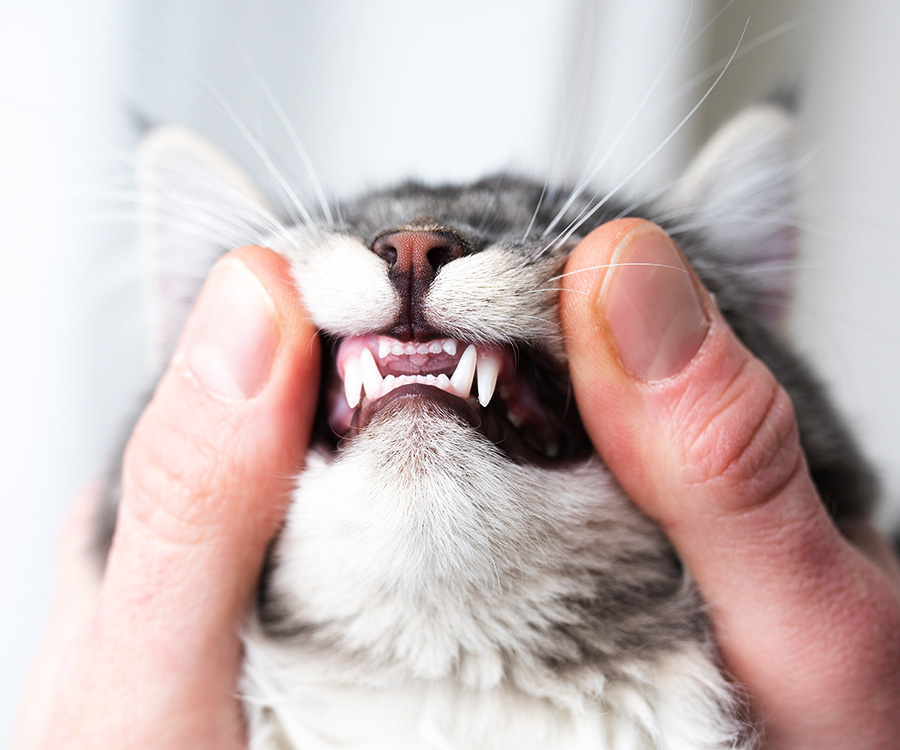
Calculating a cat’s age can be done by checking its teeth.
What if you don’t know how old your cat is? How can you tell? Calculating a cat’s age can be done fairly reliably by checking its teeth. Kittens will have their permanent set of pearly whites by four months old.
From there, it’s a little more of a guessing game. Some cats have worse teeth than others, due to genetics, poor diet, or lack of veterinary care. But for the most part, a young cat under three years old will have just a few yellow stains on its mostly-white teeth. If you're seeing tartar on all or most of the teeth, it may be a little bit older, around five years. And if you see heavy yellow or brown staining or even a few missing teeth, you’re probably looking at a senior cat. If you’re not sure, your veterinarian can help you calculate your cat’s age.
Age-Related Changes in Cats
- Another way to estimate your cat's age is by observing their behavior and physical characteristics.
- Kittens are typically more active and playful. While older cats tend to be more chill and less energetic.
- The condition of a cat's coat can also give clues about their age. Kittens usually sport soft, fluffy fur, while older cats might have thinner, less vibrant coats, or graying fur.
- In older cats reduced flexibility and dental issues might appear.
The Importance of Knowing Your Cat's Age
- Firstly, it helps you provide the right nutrition. Kittens have different dietary needs compared to adult or senior cats.
- Secondly, understanding your cat's age can help you anticipate and address age-related health issues. Older cats may need more frequent vet check-ups and specialized care.
- Lastly, knowing your cat's age helps you celebrate their milestones and provide age-appropriate toys and activities.
It's crucial to keep an eye on these signs and chat with your vet to ensure your feline friend gets the care and support they need.
How old is your cat in cat years?





